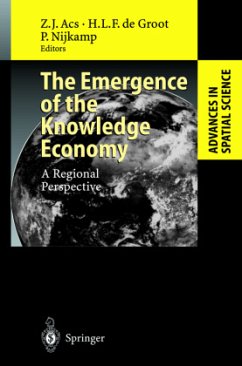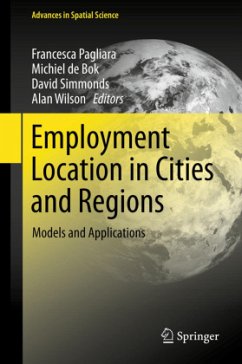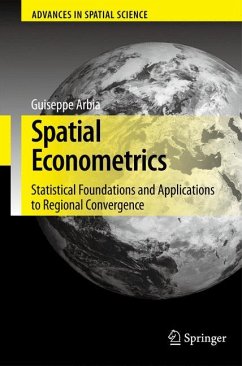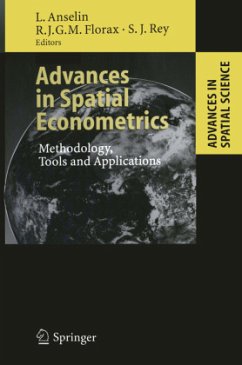
Innovation Clusters and Interregional Competition

PAYBACK Punkte
0 °P sammeln!
Advances in Spatial Science This series of books is dedicated to reporting on recent advances in spatial science. It contains scientific studies focusing on spatial phenomena, utilising theoretical frameworks, analytical methods, and empirical procedures specifically designed for spatial analysis. The series brings together innovative spatial research utilising concepts, perspectives, and methods with a relevance to both basic science and policy making. The aim is to present advances in spatial science to an informed readership in universities, research organisations, and policy-making institutions throughout the world. The type of material considered for publication in the series includes: - Monographs of theoretical and applied research in spatial science; - State-of-the-art volumes in areas of basic research; - Reports of innovative theories and methods in spatial science; - Tightly edited reports form specially organised research seminars. Manuscripts must be prepared in accordance with the guidelines for authors and editors that may be obtained from Springer-Verlag. Manuscripts considered for the series will be reviewed by independent experts to ensure their originality, scientific level, and international policy relevance.
Empirical evidence about cluster building, the emphasis of new growth theory on innovation, the recent interest in economic geography and the high pressure on politicians to establish favourable conditions for attracting dynamic industries have triggered a wave of research during the last decade, trying to understand more deeply why, how and where clusters emerge, and what factors determine their respective success or failure. In this volume the world's leading experts contribute to our understanding of regional innovation, cluster formation and the factors influencing regional productivity and innovative performance. It provides a timely and comprehensive picture on innovation, location, networks and clusters as important means in an environment of intensifying interregional competition.














